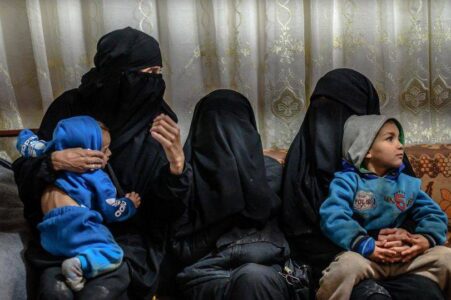
British female Islamic State terror suspects escape Syria camps using online donations
British and European female Daesh suspects are reportedly escaping detention camps in north-east Syria by being smuggled out, mostly through the use of funds raised online.
According to Daesh figures on social media sites such as Facebook and Telegram, funds must be raised through online means to free women suspected of being part of or affiliated with the terror group.
In one video, a British woman in Idlib known as Maryam Al-Britaniya was seen claiming that “Being sent out from the Islamic State [Daesh] to the camps was by far one of the worst moments of my life.” She urged sympathisers to donate money, stressing: “It’s obligatory on you to free them. Help them and donate every month to help smuggle them out.”
The camps they are attempting to escape from, including the infamous Al-Hawl camp, are being controlled and guarded by the Kurdish-led Syrian Democratic Forces (SDF) and the People’s Protection Units (YPG) militias, which hold tens of thousands of family members of former Daesh fighters.
Many of those held at the camps are nationals of foreign countries, including at least dozens of British women who fled to Syria to join the terror group.
Other examples of women from other nationalities calling for donations were also seen, with one post in German saying: “This sister has to have the money by Friday, €1000 ($1,182) is still missing,” and one pose in French claiming that “Only €3000 more is needed to free two of your sisters. Add this good deed to your balance, it may gain you entry into paradise.”
Smugglers reportedly charge an approximate amount of £12,000 ($15,785) to help families escape from Al-Hawl and other camps, which is mostly paid through online payment systems such as Bitcoin and Paypal.
Despite calls by human rights organisations and the US for the UK and other European states to repatriate their citizens and put them on trial back in their home countries, many have refused or been reluctant in doing so, citing security risks they would pose once they return.
Source: MEM





